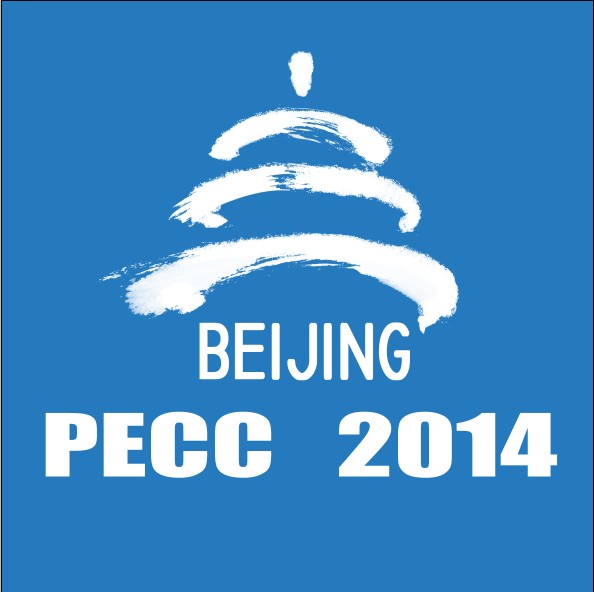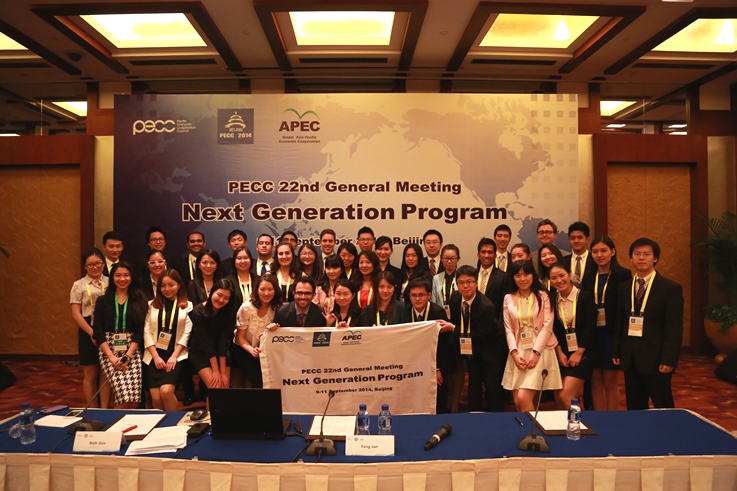|
Wednesday, 10 September 2014
|
| |
|
|
0900-0910
|
Welcome Remarks
|
| |
|
|
0910-0930
|
Opening Speech
|
| |
|
|
0930-1030
|
Keynote Speeches:
China’s Development Agenda and its Engagement with Asia Pacific
|
| |
|
|
1030-1045
|
Coffee Break
|
| |
|
|
1045-1230
|
Session I - The New Normal: Economic Restructuring in the Asia-Pacific
The Asia Pacific economies are entering a “new normal” featuring moderate growth, in-depth economic restructuring in both developed and developing economies, and regional economic integration-cum-fragmentation. There is an urgent need for enhanced policy coordination in the implementation of reform policies. The original vision of a deeply integrated Asia-Pacific offers the best pathway to continued economic prosperity. We will discuss:
- New features of the regional economic situation
- New approaches and synergy of economic restructuring in the region
- The role of APEC in promoting policy coordination and cooperation on structural reform
Keynote Speeches
Q&A Session
|
|
|
|
|
1230-1430
|
Lunch Address : China's Economic Reform and Its Implications for Regional Economic Cooperation
With the ever rising position of China's economy in the world, especially in the region, its role of No. 1 trade partner to a considerable number of regional economies, and its ever increasing pile of both inbound and outbound direct investment, China's economic development and reform agenda has long become the focus of attention in the region. With all the difficulties and challenges, the Chinese Government goes headway with the grand reform agenda. What are the implications for regional economic cooperation.
Q&A Session
|
| |
|
|
1430-1610
|
Session II - Exploring the New Drivers and New Ways for Economic Growth
While the global economy is showing some signs of recovery, the risks and uncertainties still exist and the steps toward revival are weak. As the locomotive of the global economy, the Asia Pacific region should put innovative development, economic reform and growth high on the agenda of regional economic cooperation. We will discuss:
- identify new drivers, and new ways for economic growth
- avoid middle income trap in developing economies
- define the role of APEC in promoting new growth modes for the benefits of member economies
Keynote Speech
Q&A Session
|
| |
|
|
1610-1630
|
Coffee Break
|
| |
|
|
1630-1810
|
Concurrent Sessions
|
| |
|
| |
Concurrent Session I - Urbanization and Sustainable Development of Cities : A Ready Engine to Promote Economic Growth and Cooperation
Urbanization has been a key driver of growth. Both developed and developing economies are faced with the challenge of developing their cities in a sustainable way. At the same time many cities in the region remain unconnected to the regional and global economies. The challenge is three-fold to promote cities as centers of growth; avoid the chokepoints that will hold back further development; and connect the region’s cities. We will discuss:
- urbanization as an economic engine
- best practice sharing
- APEC’s role to play
Keynote Speech
Q&A Session
|
| |
|
| |
Concurrent Session II - The Energy Challenge of Sustainable Development and Energy Security
The Asia Pacific region as the fastest developing region area in the world is keen to advance energy security, improve energy efficiency and increase the clean energy supply. The manifold rationale includes boosting economic growth, mitigating the effects of climate change, saving energy, and protecting environment. We will discuss:
- new situation of supply and demand and regional energy cooperation
- develop the strategic plan of renewable energy from both demand and supply sides
- navigate a smooth energy transition.
Keynote Speech
Q&A Session
|
| |
|
| |
Concurrent Session III - Global Value Chains (GVCs) : A New Perspective on Trade and Investment
Global Value Chains (GVCs) has important implications for trade and investment patterns and policies and offers new prospects for growth, development and jobs. The trade and investment liberalization and facilitation process in the Asia Pacific region can be better appreciated and promoted from the perspective of GVCs. We will discuss:
- role of trade in service in GVCs
- new statistical approach of trade
- how to enable developing economies to participate in GVCs
- RTAs from the perspective of GVC
Keynote Speech
Q&A Session
|
| |
|
| |
Concurrent Session IV - Chinese Entrepreneurs Participating in Regional Economic Cooperation
In recent years, the Chinese Entrepreneurs have been going abroad for investment. They have experienced successes and failures. With the ever deepening economic integration, it is even more important to promote exchange of information, experience sharing, and mutual understanding between the Chinese investors and their counterparts.
- the current situation of the Chinese overseas investment and business
- the expectation of the overseas markets on the Chinese Investors
- toward a better environment for the Chinese investors
Q&A Session
|
| |
|
|
1830-2030
|
Welcome dinner:
Asia Infrastructure Investment Bank : A Strong Support to Regional Connectivity
Q&A Session
|
| |
|
|
Thursday, 11 September 2014
|
|
|
|
0900-1030
|
Session III - Financial Cooperation in Asia Pacific: Status Quo and Prospects
The financial cooperation in the Asia Pacific region lags way behind cooperation in other economic domains. In the economic new normal of the Asia Pacific region, financial cooperation has an important role to play to promote economic growth. We will discuss:
- monetary policy coordination
- capital market
- financial regulation
- internationalization of RMB
Keynote Speech
Q&A Session
|
| |
|
|
1030-1045
|
Coffee Break
|
| |
|
|
1045-1215
|
Session IV - Regional Economic Integration: Principles, Pathways, and Vision
The economic integration of Asia-Pacific region has stepped into a critical stage. Economic integration and fragmentation in the Asia Pacific region are the major concern for the region. The region can wait no longer to work on the principles and pathways of regional economic integration. A long term vision is in urgent need with the 2020 deadline of Bogor Goals drawing near and the mega-regional free trade arrangements taking shape. At the same time, the leaders in the Asia Pacific region should be always reminded of their role to contribute to the multilateral trading system.
- principles, pathways, and framework of FTAAP
- how to make a meaningful start of FTAAP process
- revitalizing the Multilateral Trade Negotiations
Keynote Speech
Q&A Session
|
| |
|
|
1215-1230
|
Concluding Session
Closing Remarks
|
| |
|
|
1230-1400
|
Lunch Address: APEC on its Way Forward
Q&A Session
|


